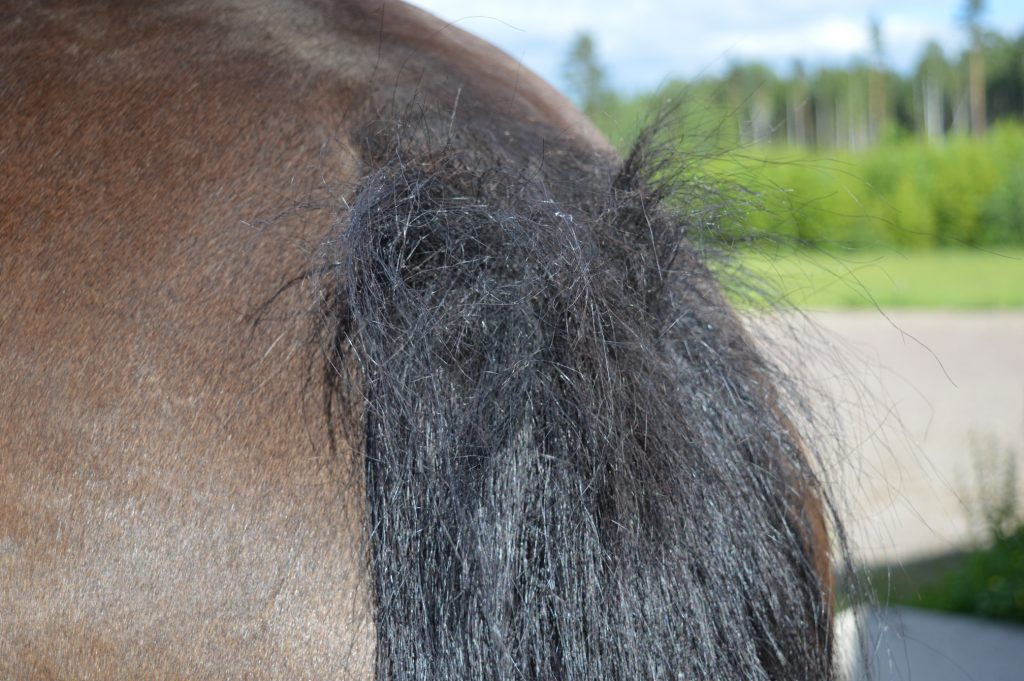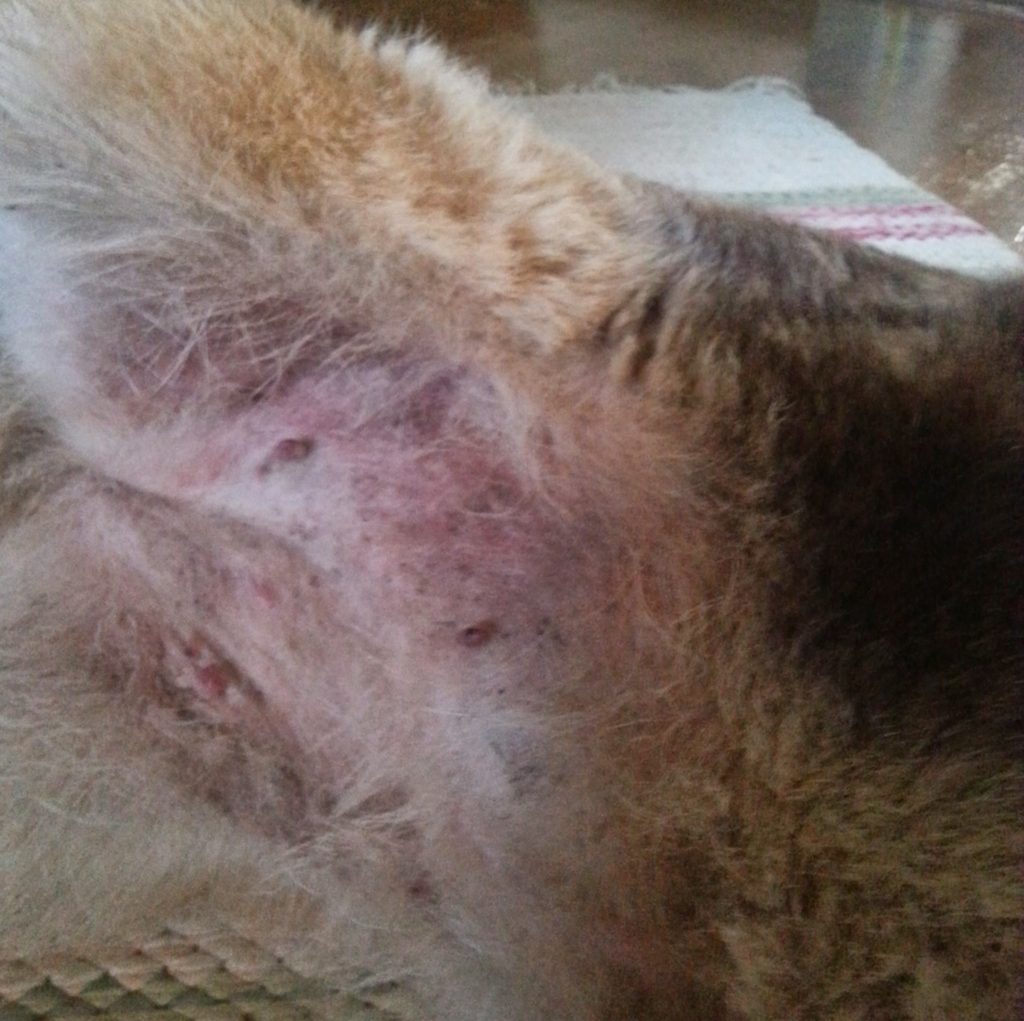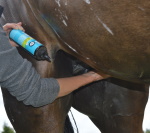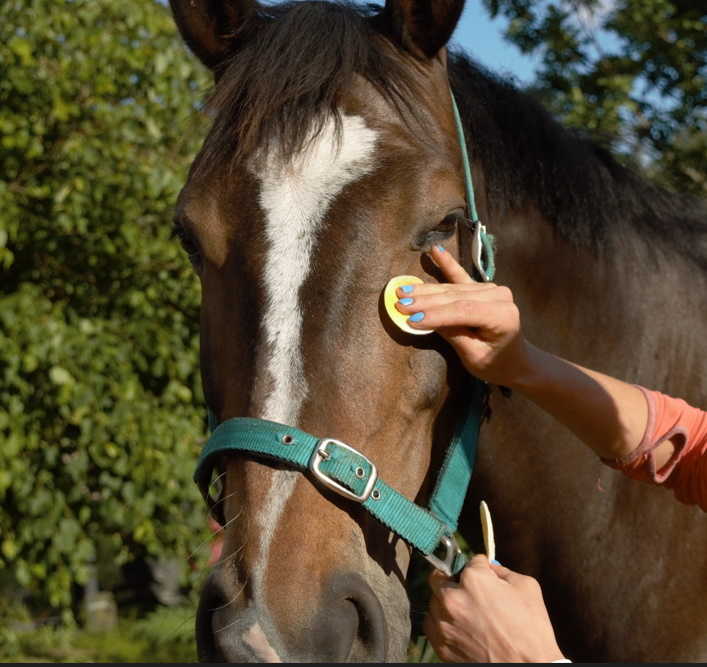SOLHEDS natural products in the management of itching skin
Insect bites and allergic reaction
Insect bites cause allergic reaction to majority of the cats, dogs and horses, just like they do to people. However, the care givers do not often recognize these as allergic reactions. Itching stings and bite marks can get infected, specifically when self grooming and rubbing happens. Many animals require treatment on their insect bites.
Treatment instructions for insect bites
Typical affected areas for horses are neck, breast, tail and stomach. Common symptom on horses’ stomach is a hard shell on the skin caused by insect bites. This hard shell on the animals stomach and tail is often very itchy. Stomach is also the common affected area in dogs, while the skin is a bit thinner and has less hair to protect it. Insect bites in dogs’ stomach are seen as red, partly infected and the skin if often itchy. Itchiness of the skin can be treated to alleviate the irritation.
The treatment is the same as for allergic skin. Difference between the allergic animal and animals reacting allergically is the intensity of the symptoms and required treatment. The infected skin is treated according to the instructions of skin infections. The sooner the care giver notices and treats the allergic skin reaction the better the treatment outcome. Derma1 Skin Care shampoo and Derma2 Calming Serum / Derma11 Anti-Itch spray are well suited to alleviate the itching and symptoms of the insect bites.

WASP STINGS IN DOGS AND CATS
Wasp stings are more likely to cause a more severe allergic reaction than bites from smaller insects such as ants and mosquitoes. First aid for stings is cooling the affected site. Derma2 calming Serum and Derma11 anti-itch spray relieves itching and reduces the reaction to the stings. If the swelling of the sting site persists or if the sting site is in the head, mouth or neck area, there is an increased risk of respiratory symptoms, in which case you should consult a veterinarian.
Information on product safety of animal care products can be found here.

Horsefly bites, insect bitten chest with exposed skin and open and suppurating sores can be managed accordingly:
1) Wet the area
2) Wash with Derma1 Skin Care shampoo, leave for 2-3 minutes
3) Rinse
4) Apply Derma6 Wound oil or Derma5 Germ Fighting cream. In addition to the skin care, the strong odour of Derma6 Wound Oil and Derma5 Germ Fighting Cream stays on the hair, which helps to protect from insects.

Summer time tips to manage insects bites
Untreated horsefly bites can get infected and hardened. Hard horseflybites can easily chafe open, which creates an infection risk. Washing horses’ externalgenitals, teats and biten stomach once a week with Derma1 skin care shampoo and application of Derma2 calming serum on dry skin , relieves the itching and prevents further insect bite problems. Corresponding insect sensitive areas for dogs are hairless stomach and in between paw pads. If the dog suffers from insect bites, weekly wash with Derma1 shampoo and application of Derma2 serum relieves the symptoms during the worst insect season.
A useful tip for washing a sweaty horse is adding a capful of Derma4 Gentle Shampoo into the washing bucket, and to sponge wet horse with this diluted shampoo water. Rinse with plain water. Derma4 reduces the water’s surface tension and makes it easier for the water to reach hair and sweaty skin. Sweaty horse attracts insects.
To prevent more severe skin damage, it is good practise to regularly;
1) wash with Derma1 skin care shampoo and
2) apply Derma2 calming serum.


Flies and eyes with heavy discharge
Apply Derma6 wound oil on cotton ball and wipe off the discharge from the corner of the eye and around the eye. Derma6 wound oil supports the sensitive skin around the eyes and due to its’ strong odour, helps to repel the flies.

Print PDF instructions:
Video instructions:
Insect repelling
Insects can be repelled in many ways. Mechanical hindrance is when fly paper or fly rug is used. Insects can be distracted by warmth and sweet traps, in order for them to leave the animals in peace. There are many good chemical insecticides and natural fly repellents on the market. Chemical synthetic insecticides are often neuro toxins, where their mode of action is based upon insects’ higher sensitivity to the toxin compared to mammals e.g permethrin. The animals ability to tolerate the synthetic chemical insecticides varies. A common side effect of insecticides is skin irritation. It is safer to use spray-able insecticides outdoors, in order to minimize the exposure of the animal and care giver to the toxins. Cats and dogs are self grooming, which sets an extra consideration on the insect protection products used. Synthetic chemical insecticides transfer easily to the body with grooming. Always verify that the product is suitable for pets as well. Manufacturers instructions on the use of the insecticides should be followed carefully.
There are also topical suspension products, which are specifically suitable for pets. The high dose required in use of these in horses, specifically in allergic horses, can create a problem. Unlike the pets, the horses are often 24/7 outside exposed to insects and thus the required repellent effect higher. The high dose can cause skin irritation.
Natural compounds, various essential oils, have long history in use as insect repellents. After the EU biocide directive came into force, the marketing of effective natural insect repellents is in practice forbidden. It is not forbidden to sell products containing these oils with insect repellant properties but it is forbidden to market these products insect repelling. The intended use defines whether the product is according to biocide regulation insect repellent or not. Natural compounds are often well tolerated. However, some animals can be allergic to some natural compounds. Insect repelling properties are shown in: lavender, citronella, pitch, neem, eucalyptus, clove, cedar, peppermint, cinnamon, catnip, tea tree, thyme, lemongrass, lemon, orange, basil, pine, pitch oil and many others. The odorous natural oils distract the insects (e.g. culicoides (non see ums), ticks, flies) ability to smell/sense the animals. The animals are hidden under the smell of natural oils. The problem with natural compounds is their short duration time, specifically when together with ethanol. The duration time is often only 30 – 60 minutes. Good natural repellant is long lasting smell “cocktail”, which hides the animal from insects.
None of the repellents have 100% efficacy. Thus the repellents can help to reduce the amount of insects but the insects cannot be totally demolished. There are plenty of various natural products (lotions, sprays, shampoos), which have repellent properties. The efficacy and duration of the repellent property varies in these products. The rule of thumb in self made products is that care giver should always be able and willing to use the same product him/herself. Anything one would not apply on own skin and hair, should one not apply on cats, dogs or horses.
Use repellents always on hair, not on skin in order to minimize the stress on skin.

